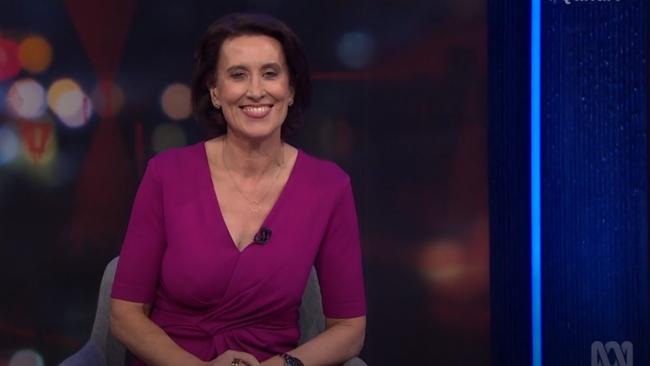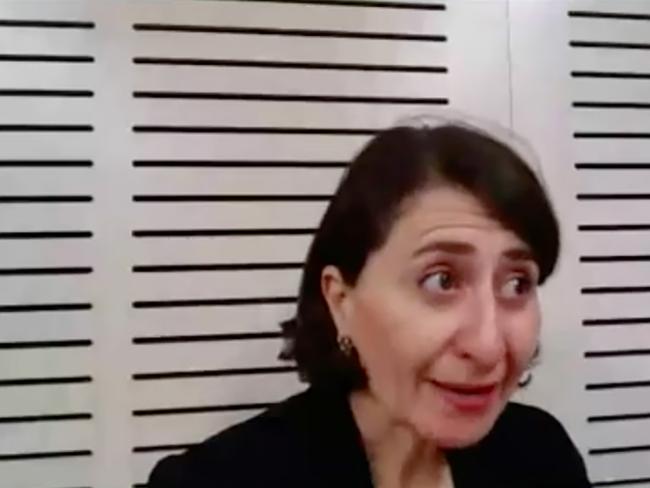Due process rolled in the push for a federal ICAC
Corruption may be high on the priority list of ABC presenters, barristers and teal independents – not regular voters.

In introducing the segment, Trioli stated: “I said at the start of this (election) campaign it was about three Cs for me – cost of living, corruption and climate.” It’s fair to say many Australian voters regard the cost of living as a key election issue – as do the various party leaders and independents.
However, it is not clear how many electors would put corruption in their top three issues of importance. What about aged care, health (including the mental health of young Australians), education standards, religious freedom, foreign policy (including the increasing role of China in the Asia Pacific), and more besides?
Clearly Trioli has an agenda when it comes to the matter of establishing a national integrity commission of a certain kind. So does Charles, a well regarded former Victorian barrister and appeal court judge who is a board member of the Centre for Public Integrity.
Charles appears occasionally on the ABC where he invariably experiences soft interviews. His thoughts also appear in Nine newspapers (The Age and The Sydney Morning Herald), which support the establishment of a national integrity commission. Sydney barrister Geoffrey Watson SC receives similar soft coverage in ABC and Nine outlets.
The problem with the approach of Charles and Watson is that they have an overly broad concept of what they regard as corruption when it comes to government. So do some of the independents (politicians and candidates alike) who support them.
On May 8, Allegra Spender, the Simon Holmes a Court independent who is contesting the election for the seat of Wentworth, received a soft and almost interruption-free interview by ABC TV Insiders presenter David Speers.
Asked whether there had been “anything in this term of parliament that you think might amount to corruption”, Spender referred to the expenditure on “carpark rorts” and “sports rorts”. Meaning federal grants with respect to the construction of carparks and sports facilities. No specific instances were cited.
When asked if such expenditure was corruption, Spender threw the switch to fudge, declaring: “I’m not a lawyer.” Speers then inquired about a federal grant for upgrades to the Redleaf Pool in the Sydney suburb of Double Bay. Spender replied that she was not going to comment on “those” grants. Speers did not press the point.
So there you have it. It would seem that, to Spender, it’s corrupt for a government to spend money on a carpark in, say, Sydney’s Padstow or Melbourne’s Pakenham – but it’s a matter of “no comment” when it comes to a pool in prosperous Double Bay.
Those critics of the grant controversies that occurred during the Keating Labor government (sports grants) and the Morrison Coalition government (carpark grants) rarely, if ever, say precisely what grants were undeserved. They seem to hold the view that unelected public servants are better equipped to make decisions about government spending than elected representatives.
This despite the fact politicians can be voted out of office, whereas bureaucrats rarely have to account for their decisions, or lack of same.

In recent times Scott Morrison has come under criticism from the legal profession for having described bodies such as the NSW Independent Commission Against Corruption as a “kangaroo court” which, if established at the federal level, could lead to Australia becoming a “public autocracy”.
For his troubles, Morrison was fanged by ICAC commissioner Stephen Rushton SC as a “buffoon”. A senior lawyer should be able to do better than engage in personal abuse – but there you go.
What worries many Coalition politicians is the record of NSW ICAC, which has ended the political careers of well-regarded NSW Liberal premiers such as Nick Greiner, Barry O’Farrell and Gladys Berejiklian and inflicted unjustified reputational damage on influential barrister Margaret Cunneen SC.
In time Greiner was cleared by the NSW Court of Appeal, O’Farrell was cleared by a subsequent ICAC finding and Cunneen won a case before the High Court of Australia. Cunneen’s story is well told in her book The Boxing Butterfly: A Life of Conviction (Wilkinson Publishing) which will be launched next month.
ICAC’s inquiry into Berejiklian is still dragging on at a bureaucratic pace – so much so that Berejiklian has already started a new career, having suffered public embarrassment because of ICAC’s unnecessary revelations about her private life.
In Keeping Them Honest, Charles acknowledges that “the decision of the ICAC commissioner to investigate Ms Cunneen and her son was a serious mistake”. Well, yes. But it still happened.
The author also maintains that Greiner, O’Farrell and Berejiklian did not have to resign after being shamed at ICAC public hearings. But they did. For Charles to argue otherwise indicates that he has scant understanding of contemporary democratic politics. Once a political leader’s reputation is damaged by a corruption commission, they have no option but to resign.
And then there are the individuals who are attracted to royal commissions, standing commissions and the like – the findings of which can rarely be challenged in a court of law.
One-time ICAC commissioner Megan Latham once declared that the role of ICAC counsel assisting was a “lot of fun” since, not being “confined by the rules of evidence”, it was like “pulling wings off butterflies”.
And Watson in his ICAC days once posed for a magazine in a boxing ring wearing a mouthguard that read “Hollywood”. How arrogant is that?
Morrison is well aware that bodies such as ICAC can lead to situations resulting in a lack of due process as well as disrupting good governance. His view is supported by former NSW Labor senator Stephen Loosley, who has expressed concern about the impact of corruption commissions “on the innocent”.
Anti-corruption commissions are much loved by some journalists since they provide stories. But they are not without a downside.
Gerard Henderson is executive director of the Sydney Institute.




Many journalists identify as commentators without an agenda. But this can be a manifestation of self-delusion. Take influential ABC presenter Virginia Trioli, for example. On April 26 during her Melbourne Radio 774 program she interviewed Stephen Charles QC, the co-author of Keeping Them Honest: The Case for a Genuine National Integrity Commission and Other Vital Democratic Reforms (Scribe).